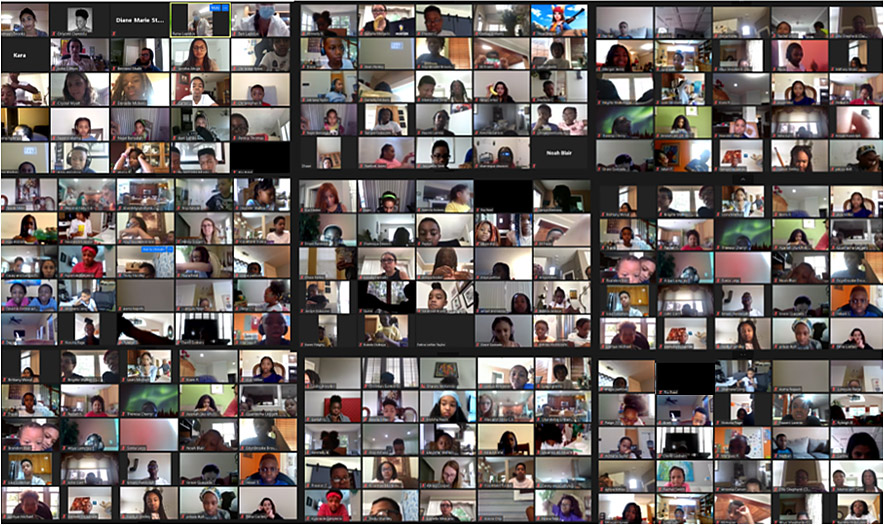August 18, 2020
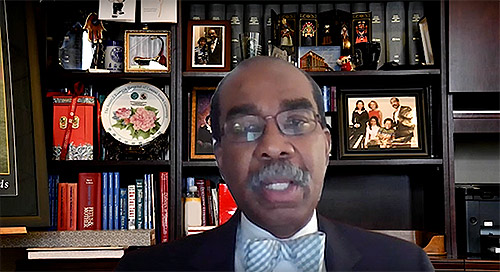 Virtual Program Reaches Over 200 Children in Baltimore—and Beyond
Virtual Program Reaches Over 200 Children in Baltimore—and Beyond
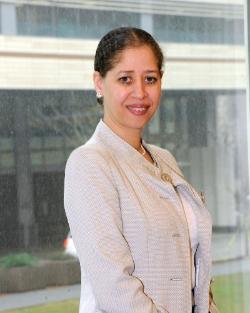 For the first time in its 13-year history, the University of Maryland School of Medicine (UMSOM) Mini-Medical School for Kids Program was streamed online, allowing over 200 children from Baltimore City and across the country to participate in this year’s cohort.
For the first time in its 13-year history, the University of Maryland School of Medicine (UMSOM) Mini-Medical School for Kids Program was streamed online, allowing over 200 children from Baltimore City and across the country to participate in this year’s cohort.
“This year’s program was like no other,” says Diane Marie St. George, PhD, Associate Professor of Epidemiology and Public Health, MPH Program Director, and Mini-Medical School for Kids Program Director, “We had children from here in Baltimore and as far away as Canada logging in each week to learn from our faculty and guest presenters about health and science.”
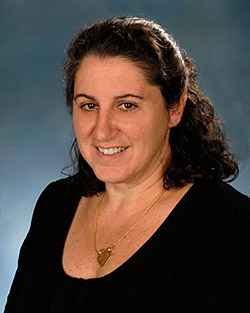
.jpg) For five consecutive weeks, students learned about infectious diseases, hand hygiene, nutrition, forensics, DNA, and the importance of physical activity through interactive, two-hour sessions on Zoom. This year’s presenters included Rena Lapidus, PhD, Assistant Professor of Medicine; James Campbell, MD, MS, Professor of Pediatrics, Center for Vaccine Development and Global Health; Mariellen Synan, Community Outreach Manager, and Asunta Henry, Community Outreach Specialist, both from the University of Maryland Medical Center; and Rana DellaRocco, MS, F-ABC, Deputy Director of Forensics, Baltimore City Police Department.
For five consecutive weeks, students learned about infectious diseases, hand hygiene, nutrition, forensics, DNA, and the importance of physical activity through interactive, two-hour sessions on Zoom. This year’s presenters included Rena Lapidus, PhD, Assistant Professor of Medicine; James Campbell, MD, MS, Professor of Pediatrics, Center for Vaccine Development and Global Health; Mariellen Synan, Community Outreach Manager, and Asunta Henry, Community Outreach Specialist, both from the University of Maryland Medical Center; and Rana DellaRocco, MS, F-ABC, Deputy Director of Forensics, Baltimore City Police Department.
These presentations were reinforced with smaller group activities or “breakout sessions” led by 20 UMSOM post-doctoral, medical, and graduate students.
“It has been a great experience teaching the kids,” says Preventive Medicine Resident and MPH Student Eseosa Fernandes, MD. “While the program has had to make some changes, more students now than even have a taste of what it’s like to be a student at the School of Medicine.”
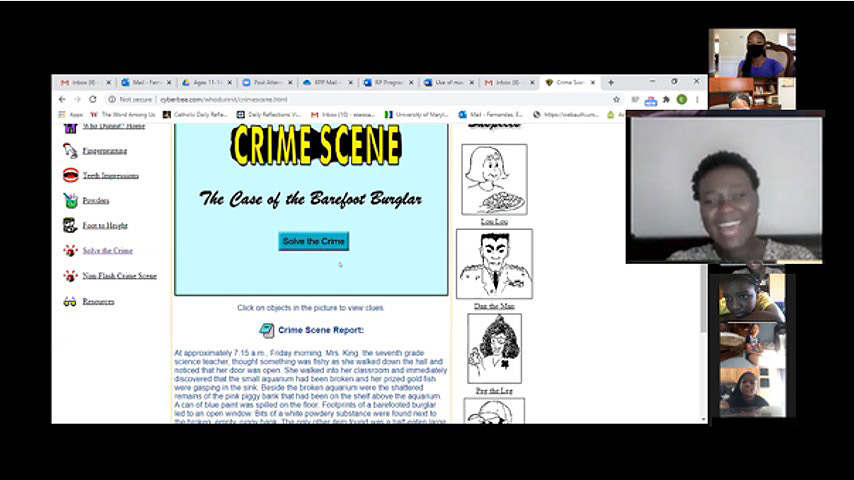
Dr. Fernandes facilitating a group discussion on forensics and DNA.
The 2020 program concluded with a STEM Panel, moderated by Vincent Conroy, PT, DScPT, Assistant Professor of Physical Therapy and Rehabilitation Science, which included a mixture of University of Maryland, Baltimore graduate and professional student panelists. Mini-Med students were also honored in a special graduation ceremony with E. Albert Reece, MD, PhD, MBA, Executive Vice President for Medical Affairs, University of Maryland, and the John and Akiko K. Bowers Distinguished Professor and Dean of the School of Medicine.
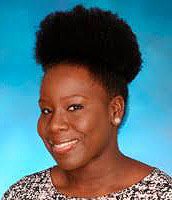 All 211 graduates received a special gift from Dean Reece and a certificate of completion.
All 211 graduates received a special gift from Dean Reece and a certificate of completion.
Oriyomi Dawodu, MS, who is Communications and Public Health Specialist in the UMSOM Office of Public Affairs & Communications and who directs all of the UMSOM community public health education programs, conceived, developed, managed and implemented the virtual Mini-Med School for Kids. She expanded a program, which typically includes 50 children from the local community, and with the help of UMSOM faculty and students, attracted nearly 300 participants to this year’s virtual program – including kids as far away as Texas and California, as well as from Mexico and Canada.
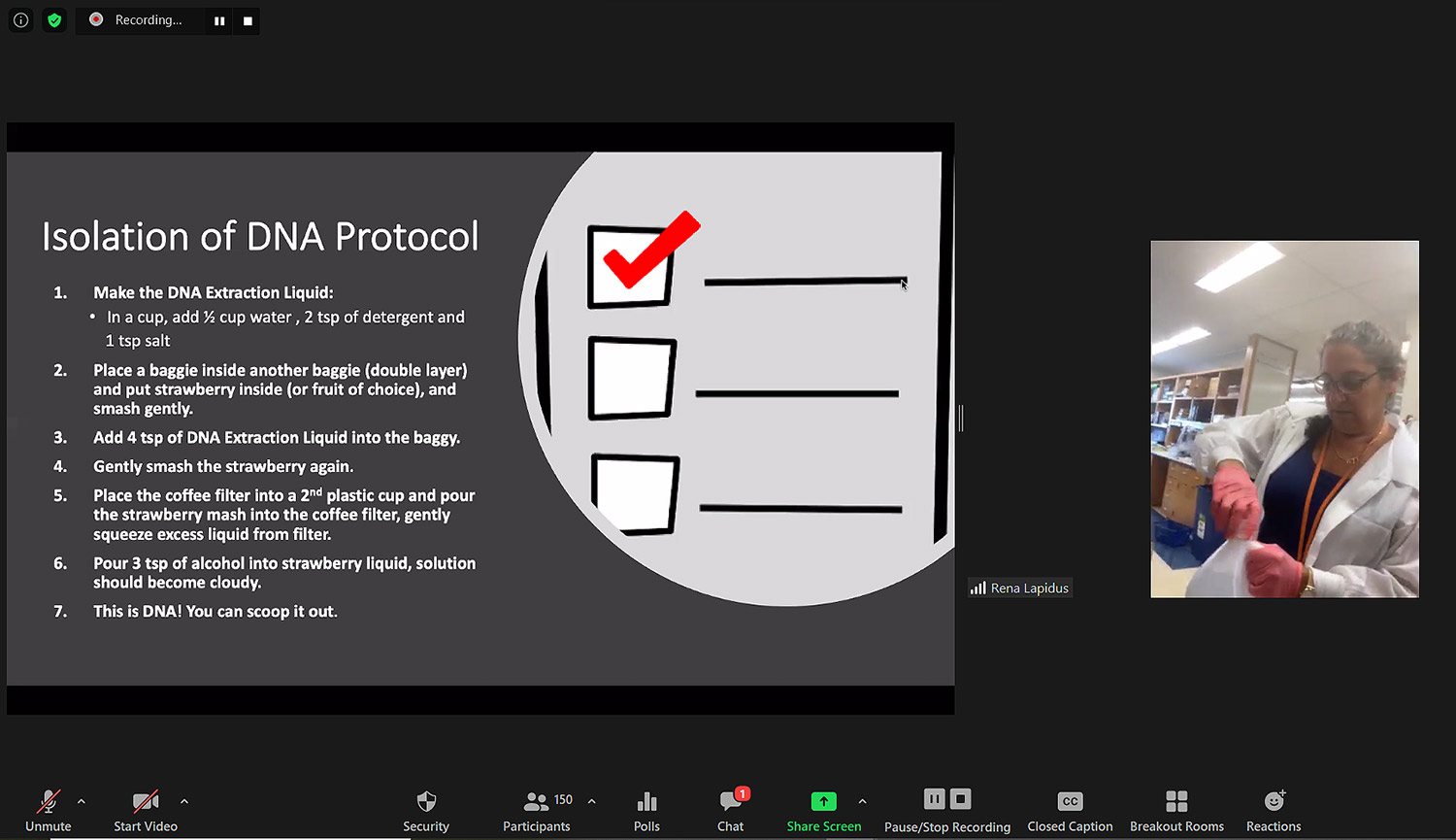
Dr. Rena Lapidus showing how to isolate DNA from strawberries.
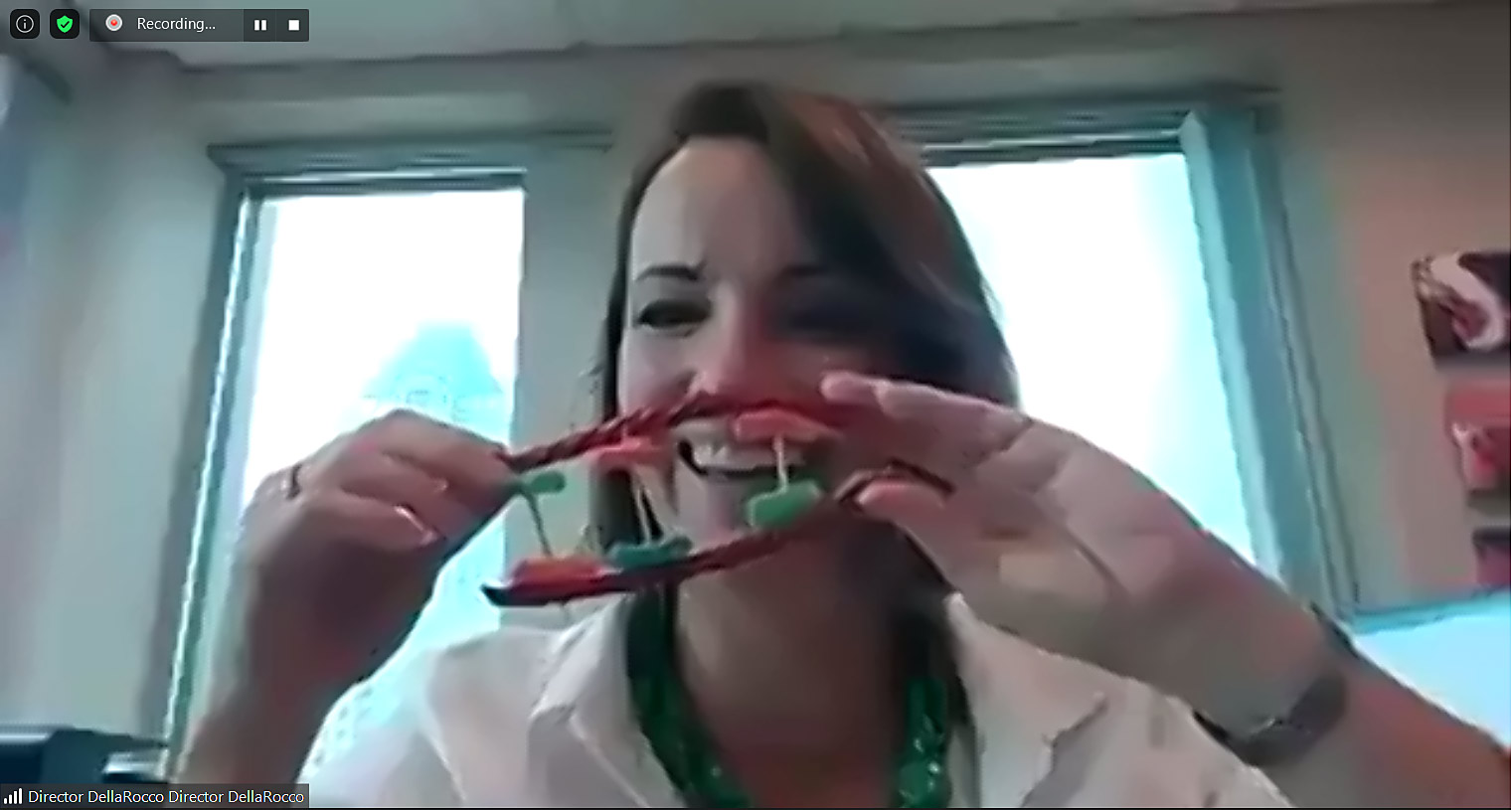
Baltimore City Police Department’s Forensics Laboratory Director, Rana DellaRocco, building a DNA molecule with candy.
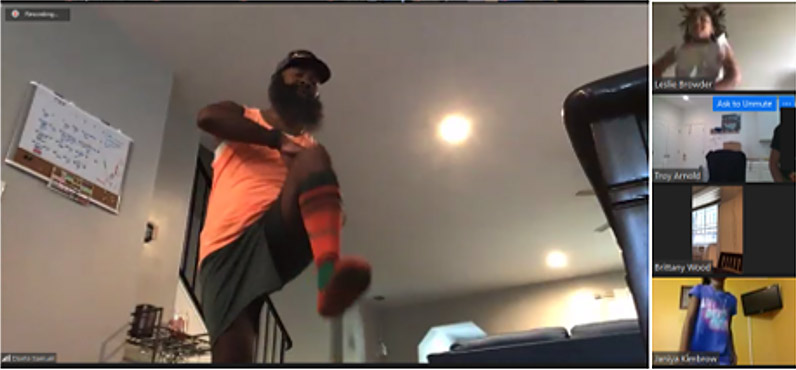
Students participating in weekly fitness session with Coach Donte Samuel, Owner of GameOn!Fitness.
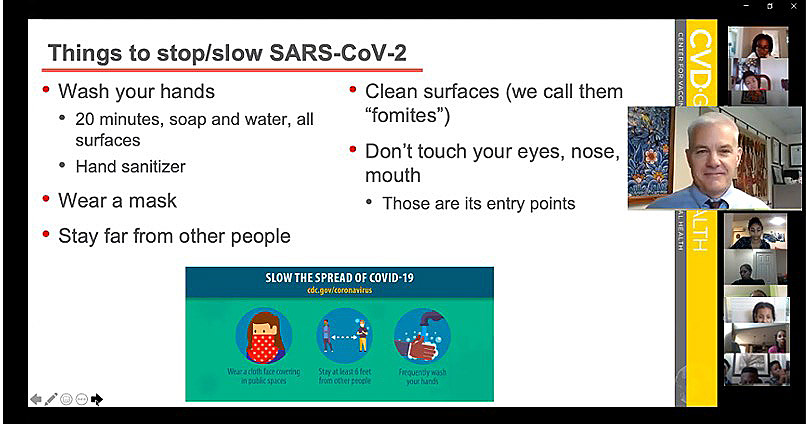
Dr. James Campbell explaining how to prevent the spread of COVID-19.
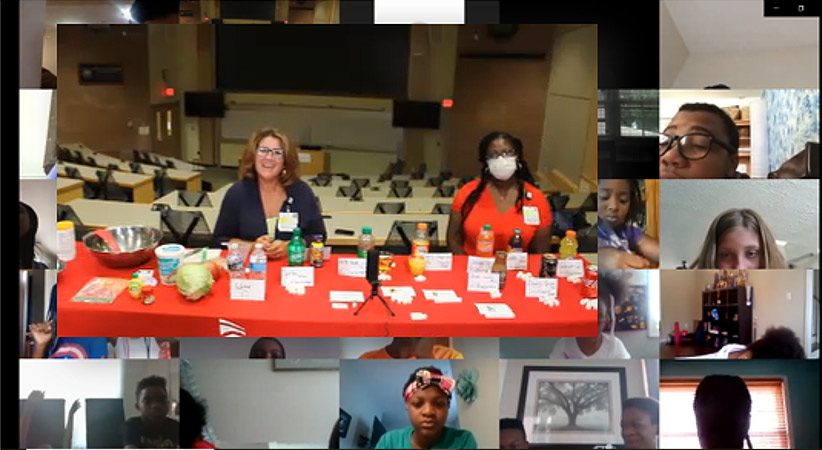
(Left to Right) Mariellen Synan and Asunta Henry discussing the health benefits of limiting sugar-sweetened beverages.
About the University of Maryland School of Medicine
Now in its third century, the University of Maryland School of Medicine was chartered in 1807 as the first public medical school in the United States. It continues today as one of the fastest growing, top-tier biomedical research enterprises in the world -- with 45 academic departments, centers, institutes, and programs; and a faculty of more than 3,000 physicians, scientists, and allied health professionals, including members of the National Academy of Medicine and the National Academy of Sciences, and a distinguished two-time winner of the Albert E. Lasker Award in Medical Research. With an operating budget of more than $1.2 billion, the School of Medicine works closely in partnership with the University of Maryland Medical Center and Medical System to provide research-intensive, academic and clinically based care for nearly 2 million patients each year. The School of Medicine has more than $540 million in extramural funding, with most of its academic departments highly ranked among all medical schools in the nation in research funding. As one of the seven professional schools that make up the University of Maryland, Baltimore campus, the School of Medicine has a total population of nearly 9,000 faculty and staff, including 2,500 student trainees, residents, and fellows. The combined School of Medicine and Medical System (“University of Maryland Medicine”) has an annual budget of nearly $6 billion and an economic impact more than $15 billion on the state and local community. The School of Medicine faculty, which ranks as the 8th highest among public medical schools in research productivity, is an innovator in translational medicine, with 600 active patents and 24 start-up companies. The School of Medicine works locally, nationally, and globally, with research and treatment facilities in 36 countries around the world. Visit medschool.umaryland.ed
Contact
Office of Public Affairs
655 West Baltimore Street
Bressler Research Building 14-002
Baltimore, Maryland 21201-1559
Contact Media Relations
(410) 706-5260
Related stories
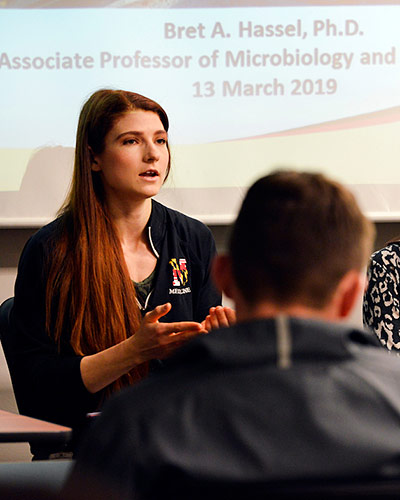
Wednesday, March 20, 2019
High School Students Visit UMSOM For Insight Into Future Careers In STEM
According to the U.S. Bureau of Labor Statistics, employment in occupations related to science, technology, engineering, and mathematics (STEM) is projected to grow to more than nine million by 2022. STEM education has been proven to bridge the ethnic and gender gaps often found in math and science fields. The University of Maryland School of Medicine (UMSOM) is committed to both the education and training of our medical and science students and its civic responsibility to bring high-quality STEM content and experiences to students in our neighboring communities. Both faculty and students are involved in this effort to foster awareness and increase diversity in the STEM pipeline.

